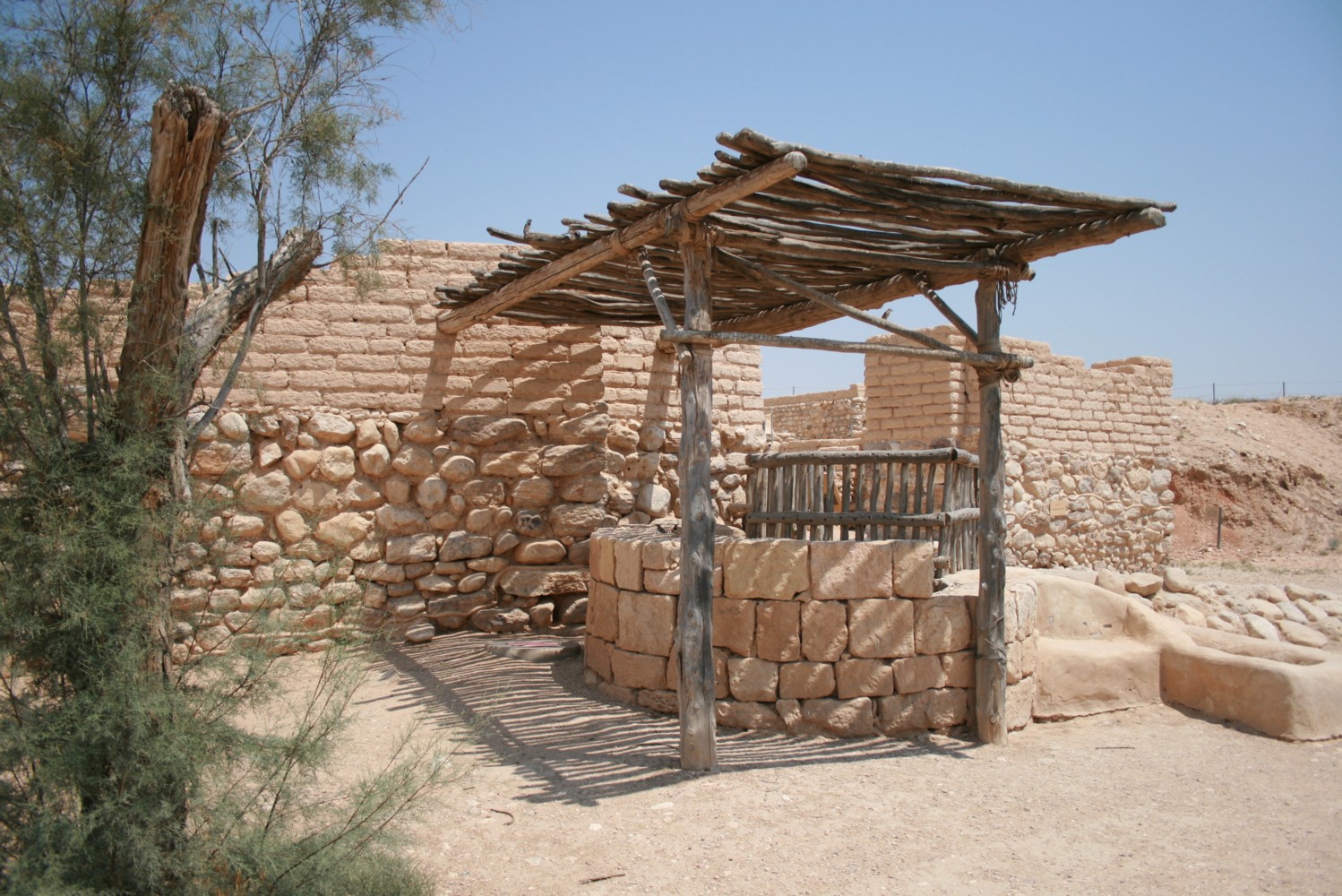Click here to download PDF
Water fight? Not quite….
In this week’s Parsha we have Yitzchak Avinu’s struggle with Avimelech and his people over Wells. interestingly enough, this was a common struggle he and his father Avraham had with Avimelech. Seemingly Avraham Avinu and Avimelech patched things up at the time. However, we see from this week’s Parsha that that was only a temporary resolution as the wells were stolen again. The amazing thing is: we would have thought that since Wells are a precious resource for life-sustaining water it was a struggle over water rights. This is not the case because when the Plishtim gained control over the wells they stuffed them up! They were not interested in the water, they were interested and destroying the wells! What was their agenda?
Why is this in the Torah? – These wells are ‘Deep’!
If anything ever gets mentioned in the Torah, it has a message for all generations. The Torah is not a storybook or a history book, it’s a book of meaningful Eternal truths and moral lessons. The very fact that the story of the wells makes it into the Torah means that there is a meaningful message for all generations. The Midrash Rabbah sees the wells as alluding to the five books of the Chumash. The holy Zohar refers to the wells as “Wells of Faith” and sees other esoteric Concepts alluded to by the wells. The Ramban echoes the point that if the story of the wells made it into the Torah there must be something special about it and he says that indeed there are tremendous Secrets alluded to. He gives one angle of those secrets and says that the three Wells that are mentioned by name Essek sitna and Rechovoth refer to the three temples. Esseck was the first temple where there was a great deal of contention and subsequently got destroyed. Sitna refers to the second temple where there was a great amount of hatred and it ended in destruction. Rechovoth refers to the expansion that we will have with the Third Temple that will last forever. What do Wells have to do with temples?
Wells Temples and Torah – Granting Access
The Hebrew word for well, “Be’er”, has multiple meanings. Aside from meaning a well, it also means to explain. As the posuk says: “Moshe sought to explain (Be’er) this Torah” (Devarim 1:5). What does a well have to do with explanation? To provide access! An idea may be deep, brilliant, relevant, and yet totally obscure and incomprehensible. With the explanation from a good teacher, the idea becomes revealed to the mind of the student. The better the explanation, the more the idea is revealed, appreciated, and absorbed. The explanation did not create the idea, it only gave access to it. Without the explanation the idea would be hidden away, invisible to the mind and heart, and totally unappreciated. This is what a well does. The well doesn’t create the waters, it makes them accessible. God describes himself: “…me they abandoned, the source of life-giving waters, to carve out for themselves broken Wells that could not hold the water…..” (yirmiyahu 2:13). Avraham Avinu did not invent God. He always was and always will be. Avraham Avinu revealed and explained the idea of God to the world. If God Likens himself to life-sustaining Waters, for he is the Creator and sustainer of the world, then Avraham Avinu makes the wells that give access to that ‘life-sustaining Waters’. The Torah is the revelation of the will and wisdom of God. This is why Torah is likened to water and life. Torah gives us access to whatever we can know about God intellectually. When the temple was standing people came three times a year “to see the face of the Lord” (shmos 34:11). At the temple you could see that there is a God. The best explanation is one that could be taught by demonstration. “Hearing can never be greater than seeing” (Rosh Hashana 25b). The temples clarified to the whole world by demonstration that there is a God who creates all and sustains all. With this we could understand why the Navi says that in the future “a spring will break out from under the temple” (Zecharia 14:8). The temple is the cosmic well that is the fruition of the wells that Avraham Avinu dug.
Avraham and Yitzchak – the initiator and the strength to continue
It wasn’t about physical water! The plishtim wanted to block up the ‘Revelation’ that Avraham Avinu revealed to the whole world. Water represents kindness. Kindness is an initiator. A person can be proactive and do something out of pure kindness even though no one asked it of him or earned it from him. Avraham Avinu’s kindness initiated revealing God to the world. Therefore, by no coincidence he initiated and was the first one to dig those Wells. But it lacked permanence! Gevura, strength, is to stick with it and that’s where Yitzchak Avinu comes in. Yitzchak gives the strength and the perseverance to stick with it even after the initial enthusiasm wears off. Avraham Avinu’s other disciples left one generation later. It takes the strength and might of Yitzhak to stick with it. Yitzchak Avinu is strength. He is about honoring commitments. He doesn’t initiate because commitment requires a command from someone else or that someone else earning that response from you. It doesn’t have initiative, but it does have perseverance! That is why Yitzchak did not call the wells new names. Avraham initiates revealing God to the world, Yitzhak adds might and perseverance to stick with it even after the initial enthusiasm waned. Yitzhak does not make a new beginning he does not call them new names he sticks with the names as he sticks to Avraham’s program. The plishtim wanted to block Avraham Avinu’s Innovation from catching on. And now you could understand why Avimelech is a common enemy to both Avraham and Yitzhak. Avimelech is about blocking the innovation of Avraham from taking permanent root. He is what comes between Avraham and Yitzhak. With this we could appreciate what Rashi says at the beginning of the parsha. The frivolous wanted to deny that Yitzchak was really Avraham Avinu’s son. So Hashem had to make Yitzhak look identical to Avraham. Why? Because they wanted to deny the legacy of Yitzhak as spiritual heir to Avraham, a spiritual heir that will add strength and make Avraham’s legacy permanent for all generations to come.
Pillar of the world
Abraham avinu is nicknamed by the Rambam as ‘amudo shel olam’, the pillar of the world (hilchos avoda zara chap 1; Moreh nevuchim 3:29) why? The answer can be found in the Rambam’s opening words to his Mishneh Torah:” the foundation of all foundations and a pillar of all wisdoms is to know that there is first existence…. God” (Hilchos yesodei HaTorah 1:1) God Consciousness is supposed to be the most basic priory truth and the pillar that we build our whole world view on. That’s what Avraham avinu did. He revealed that ‘Foundation’ and erected that ‘pillar’ of having God as the centerpiece of all of reality and our entire world view and that’s what these “Wells of faith” represented.
Good Shabbos









